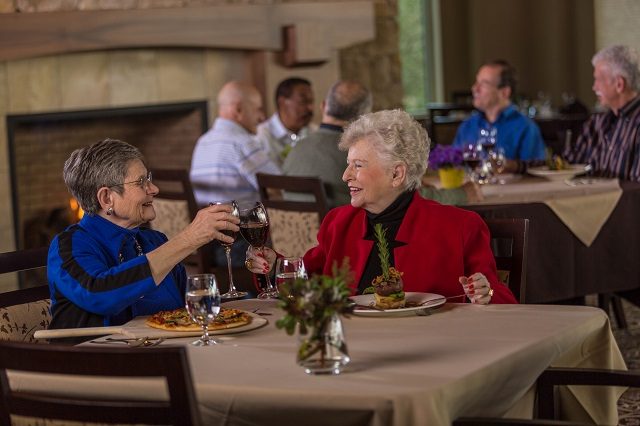Money buys choices.
As we age, our needs and preferences about housing change, and our incomes change too. At age 52 I bought a house — not the first one I’d bought, but the first one I’d bought by myself, solo, alone. Doing that gave me some security, as well as a place to keep my stuff, but I put off the decision for years because I doubted my abilities, especially without a partner. It all seemed so complicated, expensive, and permanent.
Though I bought the house by myself, I’m not alone in feeling overwhelmed about housing. Where we live matters, and the decisions don’t get any easier as we age. So I was delighted when Rebecca Miller offered to share her expertise with Long-Lived Lesbians.
As 40 years old, Miller has her Master’s in Public Administration (MPA) at Portland State University, with a specialization in Gerontology. She supports policies that affect people’s ability to live and die as they choose, including affordable and accessible housing, access to caregivers, and access to and innovations in the delivery of medical care.
Here, Miller offers LLL insights that I wish I’d known about a long time ago, especially buying my house!
(Note: Miller is in the USA, but much of what she says applies to Australia, Canada, and beyond.)
What are your main concerns for elders and housing?
I’m working to ensure that older adults are able to age in their own home, regardless of ability or income. I see three main policy or program barriers— or opportunities — that need to be addressed in order to contend with our aging population and to allow people to live and die as they choose.
Do lesbians have concerns in regard to housing that are different from those of other elderly women?
Yes. It boils down to economics and the economic status of the woman in question. If we’re talking about a household of two women earners, how do their earnings stack up when they’re ready to retire? If women are earning less over their lifetimes – and most of us are — then they’ll have fewer choices, on average, than a male/female couple. There are a lot of variables, but it’s pretty much always true that money buys choices.
Here are the statistics: 43% of unmarried women in the USA are impoverished at retirement. That rate of impoverishment at retirement for unmarried males is at just 5.4%. At the time of the survey, gay marriage wasn’t legal, so all lesbians would have been classified as unmarried, so we can see that lesbians have an unusually high probability of retiring in a state of impoverishment. Also, women have fewer years of work life expectancy, and that differs depending on whether someone has had children.
